
Alumni Voices on the Value of a Liberal Arts Education
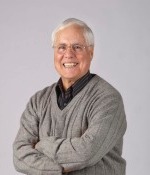
Jim Dykeman, SU Class of ’61, Seattle University Board of Regents Member
Majors: Philosophy and History
President, DYMARCO Executive Recruiting
Management Recruiters International, Inc.
For me a Liberal Arts undergraduate degree is not a how to succeed curriculum but a how not to derail success or career path set of studies. I see Liberal Arts study setting the path for one to go out and experience life’s lesson.
As an executive recruiter, I continue to be amazed at the number of the brilliant technical elite ones” seen who destroy their personal lives or career tracts while those working with equilibrium are there to fill the voids left after these tragic crashes in front on them occur.
How and where does this happen in Liberal Arts? It happens in History where perspective is built; it happens in Philosophy where logic is developed, it happens in Moral Theology where bench marks are created, it happens in literature where thinking is displayed, it happened in Fine Arts where beauty and ugliness is played, where Music opens mind and Visual Arts show us a world beyond our own domain. It happens in Criminal Justices courses; it happens in African Studies, it happens in the mystery of the Sciences.
For me a Liberal Arts education is not a ‘one thing’ but a ‘many thing’ that is dynamic and expands horizons of thought.
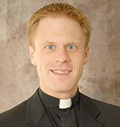
Fr. Kevin Grove, CSC, SU Class of 2004
Majors: History, English, Philosophy
Minor: Medieval Studies
Master of Divinity, University of Notre Dame, 2009
Ph.D. Candidate, Philosophical Theology, University of Cambridge (Anticipated completion, 2014)
Doctus fidelis suavis. Learned, trusty, and winsome. We freshmen in the University Honors Program memorized the Roman Ennius’ words about character. In an age when some question the value of studying ancient Rome at all, it is significant that now ten years later we remember not only Ennius but a host of others (Plato, Livy, Augustine, Dante, Shakespeare, Hobbes, Edith Stein, and more) whom we engaged as conversation partners. These thinkers taught us about engaging our world, ordering our lives, shaping and reshaping our relationships, practicing virtue, and building societies. Through the guidance of good professors, these conversation partners taught us to think while fostering that healthy sort of humility which is gained by realizing that truly human problems are often complex and rarely emergent only in our time. In short, we started to become “learned, trusty, and winsome,” habits ever in need of being refined but which turn out to be remarkably transferrable skills.
Nicholas Hendricks, SU Class of 2011
Major: Philosophy / Honors
Minors: German and Italian
Graduate student at the University of the Sacred Heart in Brescia, Italy
I was actually quite excited to write a bit about a liberal arts education, as it has done me very well, and put me on paths I never expected to find...
The Necessity of a Liberal Arts Education: Dr. Brown recently asked me to write a few lines on the value of a liberal arts education. That, unfortunately, is something I cannot do--for to speak of the value of a liberal arts education is to propose it is something that may or may not be worth adding or subtracting to another, more consequential, more necessary form of education. I do not believe that the term ‘liberal arts’ represents a set of disciplines from which one can pick and choose at random, based upon some sort of ‘market price’ or set of ‘cultural values’.
Rather, I am insistent on the necessity of a liberal arts education. Without a basis in the liberal arts, no one--no politician, no artist, no writer and certainly no scientist--can make him or herself heard. What I am trying to say is that the liberal arts were historically--and I would argue, remain today--the basis for understanding in general. After all, we would do well to remember that many of the steps forward in mathematics or science before the advent of the 20th century were made by men fully immersed in a totality of different disciplines, rarely setting one apart from the others--the philosopher-mathematicians of Ancient Greece come to mind, as well as the birth of modern economics (the dominance of which is partly to blame, I believe, for the calling into question of the liberal arts) from a man more likely to deem himself a philosopher than a scientist. Likewise, we may do well to recall the plurality of 20th and 21st century writers, philosophers, and artists who profited from their knowledge of the hard sciences, such as Italo Calvino or Jorge Luis Borges, turning those sources into new ways of understanding and enjoying the raw science they immersed themselves in.
What I’m getting at is the necessity of the liberal arts for all other disciplines, for only amongst the liberal arts can we find the tools to explain the complex ideas of science, to critique those ideas, or, more radically, to create new ways and modes of thinking, whether based upon notions borrowed and refined from science or the ways of seeing the world inherent and unique to the liberal arts. While the sciences often lack the tools to fully describe their findings to communities outside the scientific establishment, thus finding themselves dependent on the liberal arts, the true value of the liberal arts is not so much the ability to explain such discoveries, rendering them available for all people across the world, but (not to say we should in any way discount the former, given the weight the hard sciences have upon the 21st century world) the liberal arts themselves possess ways of understanding and exploring unique to themselves, fully cut off from scientific ways of thought. Only the historian, journalist or sociologist can launch an investigation into why we prefer, say, gasoline-based automobiles over electric ones, and even to this day (and as far as I can tell for the foreseeable future) only a foreign language student trained under the auspices of a liberal arts education is of any real value in helping diverse societies communicate in an ever-more connected (and ever more subtly connected) world. This is not to speak of the completely new ways of seeing and interpreting the world brought into being by 20th century philosophers as diverse as Heidegger and Foucault, which, while seldom offering a nod to the hard sciences, can indeed incorporate them. From this point of view, it is clear why I claim the liberal arts as a necessity: only the disciplines of language, literature, history, anthropology, art and so forth give humans the capacity to communicate with each other over varying cultural backgrounds and to deepen that communication, to fully understand what that communication in its various manifestations is, how it worked before, how it works now, and how it can work, i.e., to clarify old ways of understanding, enlighten ourselves as to our current ones, and usher in new completely new ways of comporting ourselves towards the world around us. To put it differently: the liberal arts show us the underlying connections between the apparent diversity of all disciplines.
Therefore I can but heartily endorse requiring all students to take a diverse array of classes from those considered part of the liberal arts. I truly cannot conceive of any student who would not be better served from studying the liberal arts. For any one dealing in abstracts, such as painting or mathematics, classes in literature and writing can only serve to better help them reach out to people who can’t grasp their discipline’s particular ways of communicating without the aid of language. For language students, whether of their own mother tongue or foreign languages, lessons in history are a necessity, for an understanding of why the language came to use this figure of speech or that, for what a particular historical event had upon the language’s word choice or current position with regard to other languages. In sum, a liberal arts education is a necessity, for it is the only way to put into context all other studies and call into question aspects of any discipline that yet remain puzzling to the student as she goes about her daily life.
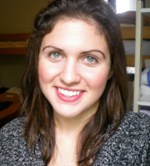
Amelia Kent, BSW, SU Class of '11
Major: Social Work
Peace Corps Volunteer
From her Nov. 21, 2012 blog post: Tomorrow is Thanksgiving so I thought I would spend some time writing about what I’m thankful for...
I am of course grateful to have the basic needs of shelter and food but until now I have never been so grateful to have a bed. It is commonplace here to see street children sleeping on the sidewalk, often only partially clothed. When I walk past them every day I am reminded of my good fortune but I am also reminded of how much work still needs to be done.
I am grateful for my social work education which has changed me in so many ways and really opened my heart as well as my mind to the injustice in the world. My education was empowering and gave me the insight I needed to inform my service and inspire my advocacy.
I’m also grateful for my idealism, because I have to believe we can do better and I have to dream that one day we will live in a world where human beings are not bought and sold, where women are not expendable and where education, basic health care and social service programs are widely accessible to those who desperately need them. I always remind students that they don’t have to accept the world as it is today and they have the power to change it.
I am grateful for my service, and the humility it brings. I may come home from work overwhelmed, exhausted and challenged but I am fulfilled knowing every day we furthered our cause and we made a difference.
Lastly I am grateful for my family, friends and mentors in my life who have supported me and encouraged me to stand up for my beliefs. I will miss sharing this day with you but I am grateful for your presence in my life, despite the distance between us.
Tim J. LeClaire, SU Class of 1982
Major: Philosophy
M.A. Organizational Leadership, Gonzaga University
Ph.D. candidate in Philosophy of Leadership Studies
Senior Account Manager, Premera Blue Cross
I consider my acceptance into the Honors Program at Seattle University to be one of my greatest gifts in life. My subsequent academic experiences and coursework leading up to a BA in Philosophy from Seattle University prepared me for the rigors of becoming a critical thinker and lifetime learner, and for those experiences I am forever grateful. In my professional life, I have the confidence that I can contribute logical and reasonable approaches to solving healthcare dilemmas. I have been well-equipped to research and will ultimately construct a doctorate dissertation on "Personal and Organizational Accountabilities in the U.S. Health Care System." My ethical roots begin in the Nicomachean Ethics of Aristotle and the Summa Theologica of Aquinas. Never underestimate the value of a liberal arts education from a Jesuit University that knows one person can change the world
Alexander Mitchell, SU Class of 2010
Major: Political Sciences
Minor: German
Applying for a career as officer in the U.S. Forces
Having graduated from Seattle University in 2010 with a Bachelor of Arts in Political Science and a German language minor, I can easily recommend a Liberal Arts education based on my own experience with the program. In the broadest sense, it allowed me to choose the courses within my degree program that most interested me - from contemporary political thought, ethics and constitutional law, to classes about religion and ecology, economics, history, modern languages, and many more. The term "well-rounded individual" is often used lightly, but in a very real sense, my Liberal Arts education has prepared me for a career in many different fields by developing my communication skills and expanding my knowledge of the world and its cultures; a necessity of today's job market that should not be overlooked. Furthermore, the opportunity to learn another language and to study abroad was hugely important to me, and was a formative experience that granted me a new perspective on life in the United States and in the world at large. I highly value my education and am confident that it will continue to serve me well.
Richard C. Nelson, SU Class of 1959
Major: Classics, Charter member of theUniversity Honors Program
LL.B. University of Washington
In Private Practice of Civil Law
The question asked was how has a liberal education benefited our graduates of the past. For me, it exposed me to a wide base of academic interests and gave me some leaning tools for further development of those interests. Over the many years since, that exposure, enhanced by reading and involvement in the arts, has taken on a great deal more relevance and significance than I thought might ever happen. The relevance and significance arises out familiarity with great thinking and great deeds of the past, as well as great mistakes of the past. That kind of backdrop seems to allow a clearer awareness of important issues of the moment and some depth of knowledge of how and why these issues arise and how they possibly might be solved.
If one contemplates the idea of “experience,” as in “experienced mountain climber,” or “experienced surgeon,” it brings up more than the idea of having done it for an extended period of time. The idea brings to mind good judgment and knowing what to do, especially when confronted with a novel situation. I look upon a liberal education as expanding a person’s background beyond what is necessary for everyday living. I look on pursuit of the arts, languages, history and other disciplines associated with the term liberal arts as “experience” of a sort that contributes to better judgment, better decisions and a fuller life than without it.
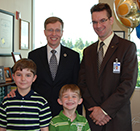
Joe Panesko, JD, SU Class of 1992
Major: Philosophy
Graduate Degree: Columbia University School of Law, Class of 1995
Employment: Assistant Attorney General, Washington State Office of the Attorney General
Many people use the phrase “critical thought” or “critical analysis,” but S.U.’s College of Arts and Sciences taught me what those phrases mean: You must engage with the material in order to understand it. You must turn yourself over to the material and allow yourself to be challenged, and changed, by the encounter. In the endeavor, context matters. Don’t approach any question, problem, or assignment without understanding the broader context, which context includes the history behind the problem, as well as your own self-awareness – appreciate the bias/perspective you bring to the analysis, and the bias of all others involved in the problem. By approaching from the broader context, you will obtain a better grasp of the “bigger picture,” and you can see important connections that many others miss.
Matt Pierson, SU Class of 2007
Majors: International Studies, Spanish
Minor: Mandarin
M.A. International Peace and Conflict Resolution, American University
Vice Consul, U.S. Embassy in Beijing, China in the Foreign Service of the U.S. Department of State
I work as a Vice Consul of the U.S. Embassy in Beijing, China in the Foreign Service of the U.S. Department of State. After getting degrees in Spanish and International Studies from Seattle University I went on to get a Masters in International Peace and Conflict Resolution from American University.
My education at Seattle University taught me the importance of seeing the big picture and how my actions and the actions of those around me affect everyone else in the world. This perspective was critical in my later graduate studies as I lived and worked in post conflict zones attempting to understand the competing narratives and interests that had driven those societies to war. In my current job as a diplomat, I again appreciate the nuanced view of the world that my Seattle University education gave me, as it helps me to better understand how those around me see a situation and how to best work together to accomplish mutual interests. SU truly helped me to become “a leader for a just and humane world,” and for that I am truly grateful.
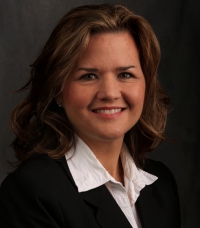
Susan R. Vosper, SU Classes of ’90 and’10
Major: Psychology & Communications
LEMBA, Albers School of Business & Economics, Seattle University
Assistant Vice President, Alumni Relations, Seattle University
To be the product of a liberal arts education means to have the skills and experiences that will shape not only the mind, but the person as a whole. This has been my experience and one that I have reaped the rewards from not only in my career but in my personal relationships and endeavors.
The value of a liberal arts education ensures that one has an arsenal of tools to draw upon that is vast. As a graduate of a liberal arts education I am able to speak clearly and intelligently on many topics and know more about the world than simply what my degree suggests. This was expected of me consistently throughout my college career at a Liberal Arts institution.
What has been the most beneficial to me, and what most don’t realize about a Liberal Arts education, is that we are really required to be scientists – meaning we are taught to wear the hat of an inquisitor and to examine the world through the use of critical thinking and questioning – a skill that is universal and essential in today’s world. My Liberal Arts education tasked me with being a theologian – to question the greater areas of life while taking a critical and spiritual look at those who came before – while applying what I found to a current problem or situation. I was challenged to search with Plato and the great philosophers, to look beyond the shadows and find the source of light. In a world where business ethics can seem to be a gray area, I was asked to define morality and to test my notions of right and wrong – again, I would say an essential of today’s world.
Because of my Liberal Arts education I am versatile and strong. I’ve been pushed to question society and myself. I have a better idea of who I am and what I want out of my career and out of my life. I have seen greatness through my studies and those I have studied – Aristotle, St. Ignatius, John Donne and they have inspired me to strive for better.
The importance of my liberal arts education is that I am better prepared for the modern world. Whether it is networking with professionals or connecting to my fellow human being, I can comfortably navigate through the world and draw on the many essentials provided to me through my Liberal Arts education.
It is a foundation I was given that I continue to draw upon, find value and wisdom in and can apply more than ever to issues in today’s world. This is the true importance and value of a Liberal Arts Education.